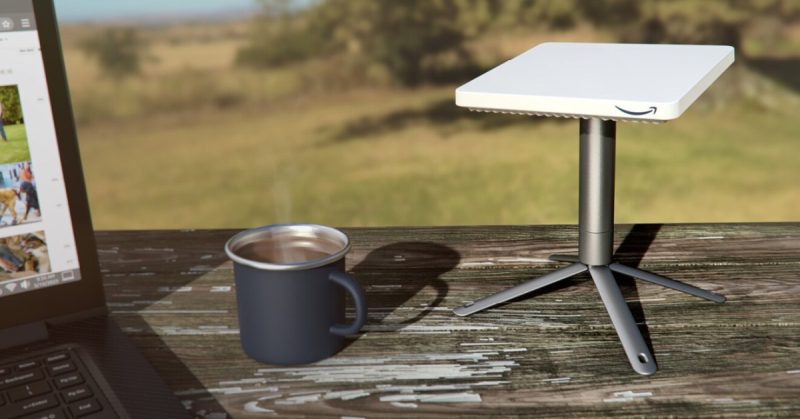
Amazon is poised to launch its ambitious Project Kuiper, a direct competitor to SpaceX’s Starlink satellite internet service. The first batch of 27 satellites is scheduled to launch next week, marking a significant step towards realizing Amazon’s vision of global high-speed internet access.
This initial launch, known as the KA-01 mission, will utilize an Atlas V rocket from United Launch Alliance. Amazon has secured a total of 80 launch missions, each carrying dozens of satellites into low Earth orbit (LEO). The company aims to have a fully operational constellation capable of rivaling Starlink’s extensive network later this year.
The service will offer various terminal antennas to suit different needs. A smaller, seven-inch dish weighing only one pound has been showcased, promising speeds up to 100Mbps—a potential game-changer for mobile users, similar to Starlink’s Mini offering. Larger dishes will also be available for residential and enterprise customers, delivering speeds up to 1Gbps. Amazon’s commitment to affordability is evident in their goal of producing these terminals for under $400 each, though potential subsidies remain a possibility.
Project Kuiper’s eventual constellation will comprise over 3,200 LEO satellites, orbiting Earth at an altitude of 392 miles and traveling at a speed of 17,000 mph. A key differentiator is the use of a special “dielectric mirror film” on the KA-01 satellites to minimize light pollution and reduce the impact on astronomical observations, a concern raised about other large satellite constellations.
While Amazon has already launched a couple of prototype satellites, the KA-01 mission presents its own unique challenges. Rajeev Badyal, vice president of Project Kuiper, acknowledges the inherent risks involved in deploying so many satellites at once, emphasizing the learning process involved. However, he expresses confidence that Amazon has the necessary resources and planning to build upon this initial launch and continue deploying satellites in the coming years.
The race for space-based internet dominance is heating up, and Amazon’s entry with Project Kuiper adds a significant new player to the competition. With ambitious goals, innovative technology, and a focus on affordability, Amazon is well-positioned to challenge Starlink’s market leadership. The coming months will be crucial in determining the success of this ambitious project and its impact on the future of global internet connectivity.










